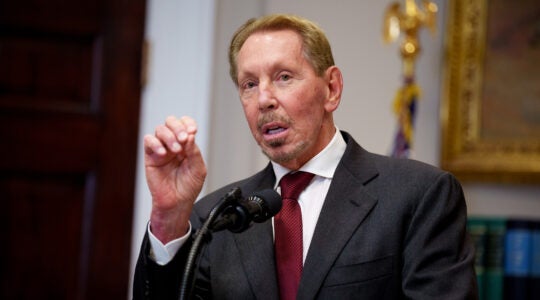JERUSALEM, Dec. 9 (JTA) — More than 40 Israelis, Palestinians and Jordanians convened this week in Jerusalem to establish a regional task force aimed at preventing the spread of AIDS. During the four-day conference, which was organized by the Jerusalem AIDS Project, participants discussed obstacles facing public health professionals in the Middle East, where religion and cultural traditions play a major role in both health and education. In the Middle East, the number of reported carriers of HIV, the virus that causes AIDS, doubled in the past two years, to 192,000, said United Nations official Johannes van Dam, a conference participant. There are as many as 10,000 HIV carriers and 1,452 reported cases of AIDS in Israel. Palestinian officials report 28 cases of AIDS, while Jordanian health professionals say they have 32 cases. Although van Dam attributed much of the increase to a greater willingness to report cases, he said the disease is spreading in the area at an alarming rate. Dr. Sana Shadid, a Palestinian physician, said, “Educating the Palestinian public about AIDS is particularly difficult because people aren’t really interested. They think — mistakenly — that we don’t have AIDS. Our society is conservative, and people think the problem doesn’t belong to them.” Despite this attitude, Shadid said, strides are being made. “This school year, for the first time, we celebrated AIDS Day,” she said. “There is now more health education in the schools and at clinics.” Wsila Nusgos, a Jordanian nurse, said that “although Jordan has very few AIDS cases to date, we have to have a joint regional effort because this disease doesn’t respect borders.” “The number of cases in Jordan is small, but we still must educate our students and others who travel abroad,” Nusgos said. Inon Schenker, director of the Jerusalem AIDS project, was elated by the cooperation emerging from the conference. “A miracle is happening. People who really have been enemies are now united in the fight against HIV/AIDS,” he said. “Although we often see this virus dividing communities — straight and gay, developed and developing countries — in our workshops we’ve seen AIDS actually unite people from very different religious and cultural backgrounds.” The conference was funded by the Israeli Ministry of Public Affairs, the Palestinian Ministry of Health, the Dialogue Fund of Canada and private donations.
JTA has documented Jewish history in real-time for over a century. Keep our journalism strong by joining us in supporting independent, award-winning reporting.





